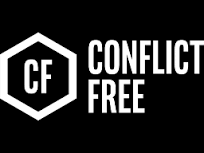Conflict Minerals
Conflict Minerals legislation arose from an amendment to the financial regulation laws in the United States of America in 2010, known as the Dodd-Frank Wall Street Reform and Consumer Protection Act of 2009.
Certain minerals are illegally mined in conflict areas (“Conflict Minerals”) in the Democratic Republic of the Congo and adjoining countries, including Angola, Burundi, Central African Republic, Congo, Rwanda, Sudan, Tanzania, Uganda, and Zambia . These minerals (sometimes referred to as 3TG in reference to their initials) are:
- Tantalum (Columbite-tantalite ore, or coltan)
- Tungsten (Wolframite ore)
- Tin (Casserite ore)
- Gold
The minerals mined from the areas mentioned above may end up in the electronics industry supply chain, and may be fueling human rights violations and environmental degradation. US companies have to file with the Securities Exchange Commission (SEC) to report on whether their source for these 4 specific minerals is from a conflict-free source.
We do not report to the SEC, and as such are not required to submit a conflict minerals report to the US Government. However, because of the global interconnected supply chain, we may be asked to report on our conflict mineral status at any time. It is Springcontacts.com intent to maintain a Conflict Mineral free marketplace.
Springcontacts.com also supports the efforts to cut the funding of armed groups that are engaged in significant human rights abuses, and other illegal activities, and expects its Sellers and their suppliers to take actions consistent with the law. Our Sellers, and their associated supply chains are encouraged to support industry-wide efforts to implement due diligence in standards, systems and procedures that ensure that Conflict Minerals are not used in products manufactured in the electronics industry. Our Sellers are required to comply with applicable laws, and we expect all of our Sellers and their suppliers to source materials in an environmentally and socially responsible manner.
Sellers should not include in any products any tin, tantalum, tungsten or gold mined in the DRC or adjoining countries that fund armed conflict. To the extent available, Sellers and their suppliers are required to use EICC‐GeSI designated Conflict Mineral free smelters as the source for any of the materials used in the products sold on Springcontacts.com.
Upon request, each Seller may be required to provide a statement indicating that all products supplied either (a) do not contain Conflicts Minerals or (b) any Conflicts Minerals that such products do contain originated from non-conflict areas or from smelters that have been validated by an independent private sector party to be conflict free. Springcontacts.com reserves the right to request additional documentation from its Sellers regarding the source of any Conflict Minerals included in its products, and reserves the right to terminate its relationship with any Sellers who do not comply with these requirements.
Springcontacts.com encourages all of its Sellers to develop Conflict Minerals policies, proper due diligence frameworks, and effective management systems in order to be able to make the representations described above. Springcontacts.com alsoS further requests that each of its Sellers impose similar requirements throughout it’s respective supply chain, and reserves the right to require Sellers to provide written evidence of their due diligence efforts in this regard, including completion of the EICC‐GeSI (Electronic Industry Citizenship Coalition – Global E‐Sustainability Initiative) Conflict Minerals Reporting Template (CMRT).



